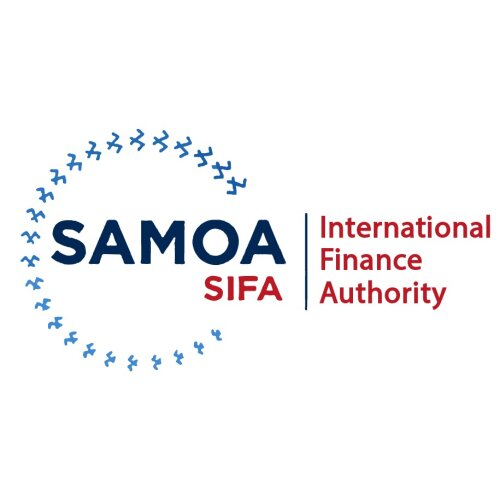Best Climate Change Law Lawyers in Apia
Share your needs with us, get contacted by law firms.
Free. Takes 2 min.
List of the best lawyers in Apia, Samoa
About Climate Change Law in Apia, Samoa
Climate Change Law in Apia, Samoa addresses the regulation and management of environmental policies, greenhouse gas emissions, adaptation measures, and climate resiliency initiatives. Apia, as the capital city of Samoa, faces unique challenges due to its geographic location, vulnerability to rising sea levels, and the increasing frequency of extreme weather events. Samoa’s climate change governance framework is guided by national laws and international commitments, such as the Paris Agreement, with a strong emphasis on protecting the local environment, supporting sustainable development, and safeguarding community well-being.
Why You May Need a Lawyer
Legal assistance can be essential when navigating Climate Change Law in Apia, Samoa. Some common situations where individuals, businesses, or communities might require legal advice include:
- Disputes related to land use, development, or resource management impacted by climate change regulations
- Understanding obligations under national climate change adaptation or mitigation policies
- Seeking compensation after climate-related property damage
- Compliance with environmental impact assessments or permits for new projects
- Advocating for community rights in the planning or implementation of climate resilience strategies
- Engaging in climate litigation or class action cases involving pollution or deforestation
- Accessing climate finance mechanisms or international climate-related funding
- Navigating international agreements and their effect on local stakeholders
Lawyers specializing in this field can provide clarity, represent your interests, and help you comply with local and international laws.
Local Laws Overview
Samoa's approach to Climate Change Law is reflected across several legal frameworks and policies in Apia. Some key aspects include:
- National Climate Change Policy - Outlines the country’s strategy to mitigate and adapt to climate change impacts, including sector-specific targets.
- Environmental Management and Conservation Act - Establishes regulations on development, environmental impact assessment, conservation efforts, and pollution control.
- Disaster and Emergency Management Act - Provides guidance on disaster risk reduction and emergency responses, which are increasingly relevant due to climate-driven hazards.
- Building Codes and Zoning Regulations - Incorporate climate resilience into infrastructure planning and coastal development, especially in the Apia urban area.
- International Agreements - Samoa is a party to the Paris Agreement and other international treaties, which influence its domestic climate policies.
Compliance with these local regulations is important to ensure lawful conduct of business, development or community action related to climate change in Apia.
Frequently Asked Questions
What environmental impact assessments are required for development projects in Apia?
Most development projects that could significantly affect the environment require an Environmental Impact Assessment (EIA), as outlined in the Environmental Management and Conservation Act. An EIA evaluates the potential effects of the project and recommends mitigation measures.
Can individuals or communities contest a project they believe violates climate change or environmental laws?
Yes, individuals and communities may raise objections or seek legal recourse through administrative or judicial processes if they believe a project contravenes climate or environmental legislation.
How does Samoa's climate change policy affect businesses in Apia?
Businesses must comply with national adaptation and mitigation policies. This may include adhering to emissions standards, sustainable resource use, reporting requirements, and environmental permits relevant to their operations.
Who is responsible for enforcing climate change laws in Apia?
Enforcement is carried out by government agencies such as the Ministry of Natural Resources and Environment, with oversight by the Attorney General’s office and relevant regulatory authorities.
What legal remedies exist for property damage linked to climate-related events?
You may pursue civil claims for damages or compensation, depending on the circumstances and if negligence or regulatory breaches are involved. Legal aid and government support may be available in some cases.
Do international treaties like the Paris Agreement have direct legal effect in Samoa?
International treaties require local enactment before they become legally enforceable. Samoa has incorporated some aspects of its treaty commitments into domestic law, particularly policies aligned with the Paris Agreement.
Are there specific laws addressing sea level rise and coastal erosion in Apia?
Yes, building codes, zoning regulations, and environmental laws address these issues by restricting certain developments, mandating setbacks, and supporting coastal protection projects.
Can non-governmental organizations participate in climate change policy development?
Non-governmental organizations often participate in policy consultation processes, providing input and advocating for community and environmental interests during lawmaking.
What should I do if I believe a government agency is not enforcing climate laws properly?
You can file complaints with oversight bodies, seek judicial review in the courts, or request intervention from the Ombudsman or Ministry of Natural Resources and Environment.
Is financial assistance available for climate change adaptation or green projects?
Yes, there are grants, incentives, and international funding sources available for eligible climate adaptation and mitigation initiatives. A lawyer can help you understand eligibility requirements and the application process.
Additional Resources
Individuals seeking more information or legal support regarding Climate Change Law in Apia, Samoa may find the following resources useful:
- Ministry of Natural Resources and Environment - Responsible for climate policy implementation and regulatory matters
- Samoa Law Reform Commission - Provides information on environmental legislation and law reform projects
- Attorney General’s Office - Legal advice and oversight on government enforcement of climate-related laws
- Secretariat of the Pacific Regional Environment Programme - Regional support and technical resources on climate policy
- Local NGOs (for example, Samoa Conservation Society) - Advocacy and public education on climate change issues
Next Steps
If you require legal help with Climate Change Law in Apia, Samoa, consider the following steps:
- Identify your specific legal concern or question
- Collect any relevant documents, permits, correspondence, or evidence
- Contact a local lawyer or legal aid organization with experience in environmental or climate change law
- Discuss your situation in detail, including possible solutions or remedies
- Follow your lawyer’s advice for the next steps, whether this involves negotiation, mediation, filing a complaint, or court proceedings
- Stay informed of relevant laws and policy updates through governmental or community bulletins
Legal assistance can ensure your interests are protected, and that you remain compliant with Samoa’s evolving climate regulations.
Lawzana helps you find the best lawyers and law firms in Apia through a curated and pre-screened list of qualified legal professionals. Our platform offers rankings and detailed profiles of attorneys and law firms, allowing you to compare based on practice areas, including Climate Change Law, experience, and client feedback.
Each profile includes a description of the firm's areas of practice, client reviews, team members and partners, year of establishment, spoken languages, office locations, contact information, social media presence, and any published articles or resources. Most firms on our platform speak English and are experienced in both local and international legal matters.
Get a quote from top-rated law firms in Apia, Samoa — quickly, securely, and without unnecessary hassle.
Disclaimer:
The information provided on this page is for general informational purposes only and does not constitute legal advice. While we strive to ensure the accuracy and relevance of the content, legal information may change over time, and interpretations of the law can vary. You should always consult with a qualified legal professional for advice specific to your situation.
We disclaim all liability for actions taken or not taken based on the content of this page. If you believe any information is incorrect or outdated, please contact us, and we will review and update it where appropriate.











